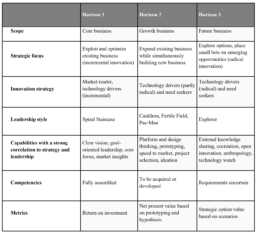The difference between Capability and Competence
What is the difference between these seemingly identical terms? The simple answer is that capabilities are seen as generic, while competence is found in more specialized fields. Within the organization, according to Assink (2006), the term capabilities emphasizes the key role of strategic management in appropriately adapting, integrating, and reconfiguring organizational skills, resources, and functional competencies to match the requirements of a changing environment.
Often, the term knowledge is used to describe what we specifically know, while competence is broader and includes cognitive ability (intelligence), motor skills, and artistic abilities. In this book, as in the Innovation360 framework for innovation, we use the two terms in the following way:
We use capability to define “the organizational ability of an enterprise to successfully undertake action that is intended to affect its long-term growth and both internal and external development”. We use competence in a broad sense to define “knowledge that you are able to use on different levels: in the collaborative network, organization, and organizational unit, as well as on an individual and personal level.”
As illustrated in Table 1, the competence requirements for the first horizon, is often well understood, and a gap analysis can be made on each of the groups and individuals based on their role and responsibility. However, the competence requirements for the second and third horizons are not known. At the same time, the capability requirement can be mapped to each of the horizons and thereby also to teams, based on the horizon they should work in. This difference is therefore important to understand when building an organization for successful innovation across all three horizons.

Table 1: Horizon characteristics. Based on work between 2008 and 2016 by Penker, Ohr, and McFarthing (2013), Jaruzelski and Dehoff (2010), and Loewe, Williamson, and Wood (2001). All data are collected and analyzed in InnoSurvey (2016)